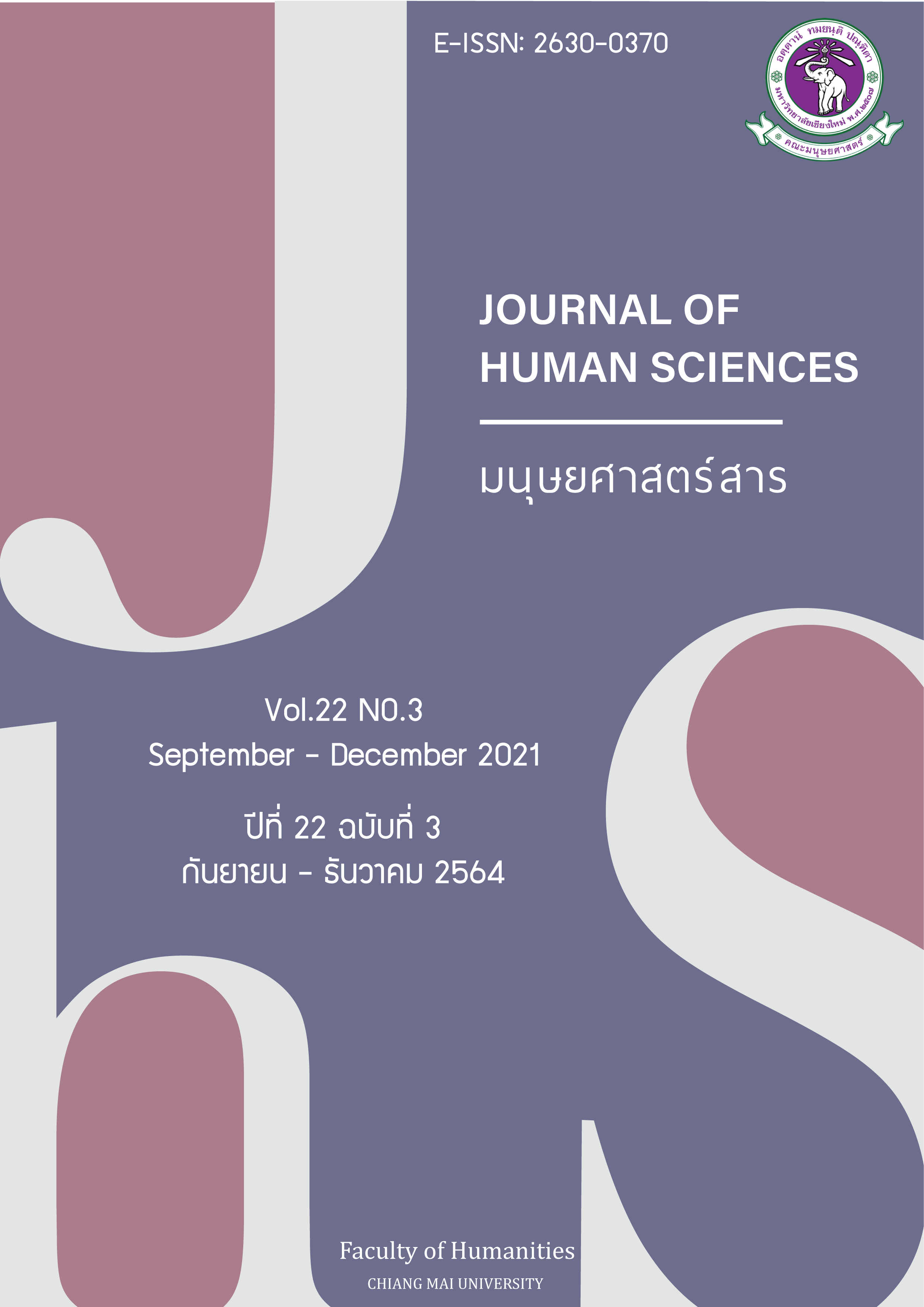การประยุกต์ใช้เครื่องมือตรวจไวยากรณ์ เพื่อส่งเสริมการเขียนภาษาอังกฤษให้ถูกต้องตามหลักไวยากรณ์
Main Article Content
บทคัดย่อ
งานวิจัยนี้มีวัตถุประสงค์เพื่อศึกษาผลของการประยุกต์ใช้เครื่องมือตรวจไวยากรณ์ (Grammar checker) เพื่อส่งเสริมการเขียนภาษาอังกฤษให้ถูกต้องตามหลักไวยากรณ์ กลุ่มตัวอย่างเป็นนักศึกษาวิชาเอกภาษาอังกฤษจำนวน 36 คน ขั้นตอนการวิจัยเริ่มจากการสอนวิธีการใช้เครื่องมือตรวจไวยากรณ์และอธิบายหลักไวยากรณ์ที่ผู้เรียนภาษาอังกฤษชาวไทยเขียนผิดพลาดบ่อย 14 ประเภท ได้แก่ article, capitalization, fragment, parallel structure, preposition, punctuation, run-on sentence, singular/plural, spelling, subject-verb agreement, verb tense, verb form, word form, and word order จากนั้นจึงมอบหมายงานเขียนภาษาอังกฤษจำนวน 5 ชิ้น โดยกลุ่มตัวอย่างต้องใช้เครื่องมือตรวจไวยากรณ์ตรวจข้อผิดพลาดทางไวยากรณ์ของตนในงานทุกชิ้น อีกทั้งต้องวิเคราะห์ประเภทของข้อผิดพลาดของตนที่เครื่องมือตรวจจับได้ บันทึกข้อผิดพลาดเหล่านั้น และเขียนแก้ไขประโยคที่มีข้อผิดพลาดให้ถูกต้อง เป็นการเสริมสร้างความตระหนักรู้ด้านไวยากรณ์ เพื่อส่งเสริมให้กลุ่มตัวอย่างเขียนภาษาอังกฤษให้ถูกต้องตามหลักไวยากรณ์มากขึ้น เครื่องมือที่ใช้ในการวิจัยได้แก่ 1) เครื่องมือตรวจไวยากรณ์ของ Ginger Software 2) แบบทดสอบก่อนและหลังการทดลอง เพื่อประเมินความสามารถในการเขียนภาษาอังกฤษให้ถูกต้องตามหลักไวยากรณ์ 3) แบบวิเคราะห์และบันทึกข้อผิดพลาดทางไวยากรณ์ ข้อมูลที่ได้ถูกนำมาวิเคราะห์หาค่าเฉลี่ย ส่วนเบี่ยงเบนมาตรฐาน และสถิติทดสอบ t-test (Dependent Samples) ผลการวิจัยพบว่า การประยุกต์ใช้เครื่องมือตรวจไวยากรณ์ร่วมกันกับการวิเคราะห์และบันทึกข้อผิดพลาดทางไวยากรณ์ที่เครื่องมือตรวจจับได้สามารถช่วยให้นักศึกษากลุ่มตัวอย่างเขียนภาษาอังกฤษได้ถูกต้องตามหลักไวยากรณ์มากขึ้น
Article Details

อนุญาตภายใต้เงื่อนไข Creative Commons Attribution-NonCommercial-NoDerivatives 4.0 International License.
เอกสารอ้างอิง
Bunjantr, T. (2018). An analysis of syntactic errors in English writing. Journal of Graduate Studies in Northern Rajabhat Universities, 8(15), 1-16.
Corder, S. P. (1981). Error analysis and interlanguage. Oxford: Oxford University Press.
Hernández, M. S. (2011). Raising student awareness about grammatical and lexical errors via email. Revista de Lenguas Modernas, 14: 263-281.
Jayavalan, K. & Razali, A. (2018). Effectiveness of online grammar checker to improve secondary students’ English narrative essay writing. International Research Journal of Education and Sciences (IRJES), 2(1), 1-6. Retrieved from https://www.masree.info/wp-content/uploads/2019/11/IRJES-VOL-2 -ISSUE-1-ARTICLE-1.pdf
Lauren, F. & Varnhagen, C. (2006). Spelling and grammar checkers: Are they intrusive? British Journal of Educational Technology, 37(5), 721-732.
Lee, K.-w. (2000). English Teachers' Barriers to the Use of Computer-assisted Language Learning [Electronic Version]. The Internet TESL Journal VI, from http://iteslj.org/Articles/Lee-CALLbarriers.html
Noguchi, R. R. (1991) Grammar and the teaching of writing: Limits and possibilities. Illinois: National Council of Teachers of English.
Nonkukhetkhong, K. (2013). Grammar error analysis of the first year English major students, Udon Thani Rajabhat Universiy. Proceedings of the Asian Conference on Language Learning 2013 in The International Academic Forum, 117-126.
Renshaw, D. A. (1991). The effect of an interactive grammar/style checker on students’ writing skills. Delta Pi Epsilon Journal, 33(2), 80-93.
Sert, O. (2006). Heightening grammatical awareness in English. Online Submission, 1-8. Retrieved August 26, 2016 from http://files.eric.ed.gov/fulltext/ ED495836.pdf
Watcharapunyawong, S. & Usaha, S. (2013). Thai EFL students’ writing errors in different text types: The interference of the first language. English language teaching, 6(1), 67-68.


